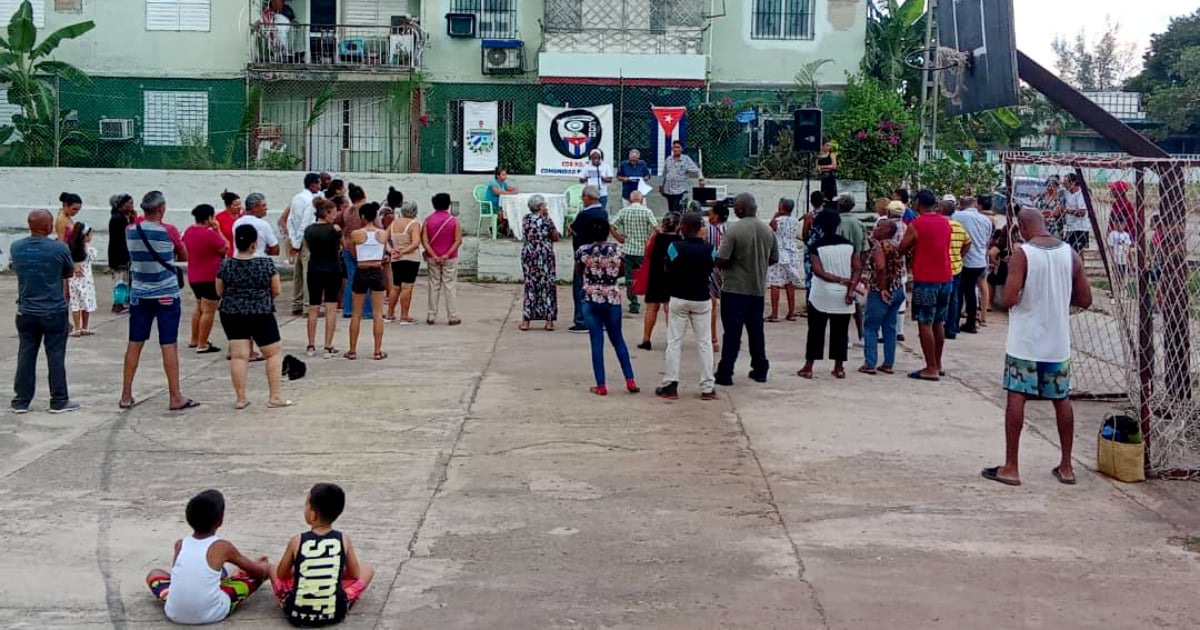
The process of accountability of the delegates to their base voters began this Friday in Cuba and will extend until November 20 amid a severe energy and food crisis that exacerbates citizens' discontent.
Suspended in October of last year due to the "fuel shortage" claimed by the regime, the accountability exercise that has begun puts the authorities on alert for possible demonstrations that deviate from what the regime defines as the "Cuban democratic system."
"The accountability of the delegate is the most important political process of this year, for which the call was made from the Council of State. The delegates, the popular councils, the national and municipal assemblies with all their commissions, and the departments attending to these instances in the provinces have worked very intensively in preparation for it," assured Roberto Morales Ojeda, deputy for the municipality of Cienfuegos, this Friday.
Meeting with delegates, presidents of popular councils, and "essential factors of the communities of the provincial capital," the also secretary of organization of the Central Committee of the Communist Party of Cuba "highlighted the deeply democratic nature of both the process in general and the figure of the delegate."
According to Granma, despite the "difficult contextual circumstances" in which the process takes place, Morales Ojeda defended the importance of "this democratic popular exchange, from which solutions must emerge, because the wisdom of the people is incalculable." He also called for making the process visible through the personal social media of the voters.
Determined to present the representative system as "democratic," the Cuban regime makes the risky decision to carry out the accountability process, for which it has been preparing the scenario, mobilizing all its "mass organizations" and repressive bodies.
With the country going through what could be considered the worst crisis in its history in all areas, the authorities of the regime fear that genuine debates may take place in the districts and that the voters' spirits may heat up, which is why they have repeatedly emphasized that the accountability process is a key instrument for "socialist and revolutionary democracy."
Not for nothing, in March 2017, the then and current president of the National Assembly of People's Power, Esteban Lazo Hernández, emphasized that the meetings to render accounts are an important space to "reflect on how to promote" the revolutionary values of the late dictator Fidel Castro.
Without any legitimacy to wield, the Cuban regime panics at the thought of citizens staging another massive protest like the one that occurred in July 2021, or that the widespread discontent with its inefficiency, corruption, and repression leads to outbursts during the assemblies, where voters exercise their right to free expression under the pretext of “popular participation” protected by the “Cuban democratic system.”
The accountability process is presented by the Cuban regime as a way for the people to participate in the exercise of government. However, the population perceives the process as a formality they attend to "avoid drawing attention to themselves," and the supposed dialogue with the delegate is little more than a political charade.
In this scenario, with inflation skyrocketing, the shortage of food and medicine worsening by the day, the collapse of public services such as health, transportation, and education, the increase in poverty and inequality, and the agony of frequent and prolonged blackouts, "popular participation" may overflow conventional norms and end up transforming into a massive expression of rejection against the prevailing order.
The perception of the population in the two years since the last legislative elections is that the delegates have repeated their usual behavior in their roles within the Cuban regime: voting unanimously and justifying socioeconomic problems with the usual arguments dictated by the Palace.
The Cuban totalitarian regime must be feeling dizzy these days. Despite the mobilization of resources so that voters in each district see "cameras and microphones" at their assemblies, as well as plainclothes and uniformed agents among the attendees, the levels of discontent in society are increasingly greater and the reactions of citizens are becoming more and more unpredictable.
What do you think?
COMMENTFiled under: